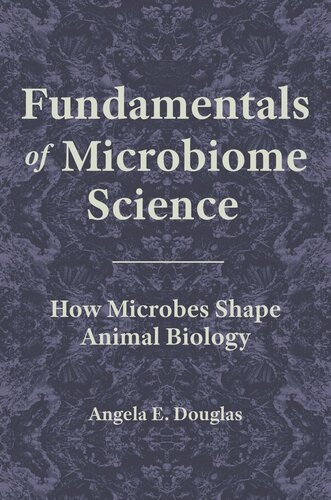

Most ebook files are in PDF format, so you can easily read them using various software such as Foxit Reader or directly on the Google Chrome browser.
Some ebook files are released by publishers in other formats such as .awz, .mobi, .epub, .fb2, etc. You may need to install specific software to read these formats on mobile/PC, such as Calibre.
Please read the tutorial at this link: https://ebookbell.com/faq
We offer FREE conversion to the popular formats you request; however, this may take some time. Therefore, right after payment, please email us, and we will try to provide the service as quickly as possible.
For some exceptional file formats or broken links (if any), please refrain from opening any disputes. Instead, email us first, and we will try to assist within a maximum of 6 hours.
EbookBell Team

4.4
12 reviewsAn essential introduction to microbiome science, a new cutting-edge discipline that is transforming the life sciences
This book provides an accessible and authoritative guide to the fundamental principles of microbiome science, an exciting and fast-emerging new discipline that is reshaping many aspects of the life sciences. Resident microbes in healthy animals--including humans—can dictate many traits of the animal host. This animal microbiome is a second immune system conferring protection against pathogens; it can structure host metabolism in animals as diverse as reef corals and hibernating mammals; and it may influence animal behavior, from social recognition to emotional states. These microbial partners can also drive ecologically important traits, from thermal tolerance to diet, and have contributed to animal diversification over long evolutionary timescales.
Drawing on concepts and data across a broad range of disciplines and systems, Angela Douglas provides a conceptual framework for understanding these animal-microbe interactions while shedding critical light on the scientific challenges that lie ahead. Douglas explains why microbiome science demands creative and interdisciplinary thinking—the capacity to combine microbiology with animal physiology, ecological theory with immunology, and evolutionary perspectives with metabolic science.
An essential introduction to a cutting-edge field that is revolutionizing the life sciences, this book explains why microbiome science presents a more complete picture of the biology of humans and other animals, and how it can deliver novel therapies for many medical conditions and new strategies for pest control.